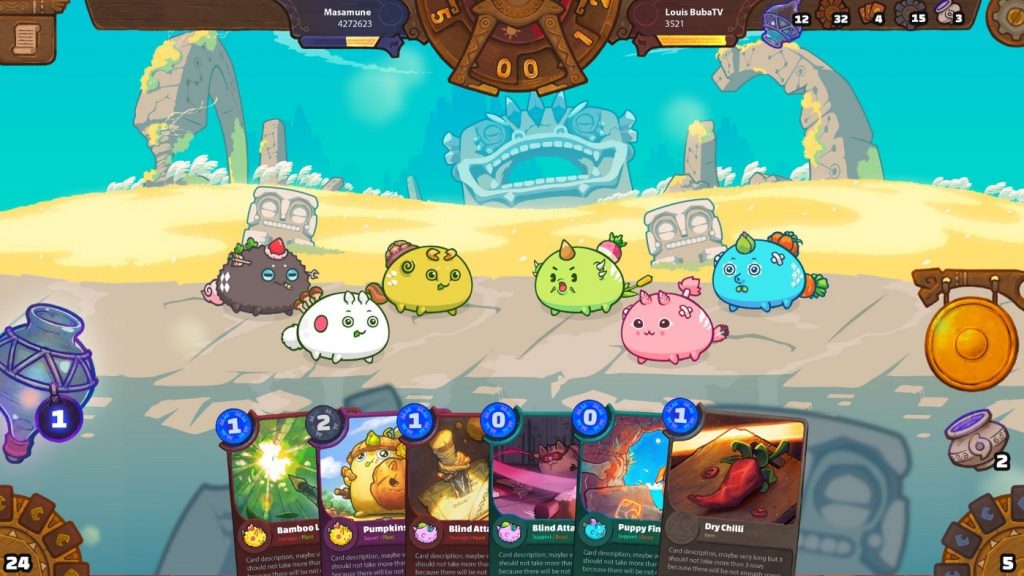Many times over the years we have heard discussions about models like Play to Earn that might disrupt the traditional gaming industry. And to some extent, we have seen success with some new ideas. For instance, the freemium gaming model has seen huge success. However, the standard model of simply buying a game and then playing it until you get bored remains the prevailing way we interact with the industry.
And yet, perhaps the most alluring alternative to arrive in recent years is the Play to Earn model. Mostly associated with blockchain games, Play to Earn or P2E gaming is exactly what it suggests – you play to earn money, usually in the form of cryptocurrency, NFTs, or some other cash-redeemable reward.
Some experts believe this represents the future of gaming, whereas many others believe it is an unsustainable fad. Regardless, it’s an intriguing concept and one that could transform the gaming industry forever.
Axie Infinity led the way in Play to Earn
Axie Infinity is perhaps the most famous example of a Play to Earn game. Launched in 2018, it quickly became synonymous with the Play to Earn industry. Based on the Ethereum blockchain, the game launched its own in-game tokens and NFTs. By 2021 – at the height of the cryptocurrency boom – the game had millions of players. Indeed, in some lower-income countries like the Philippines, the game had players who used it as a job.
In 2022, however, the wheel came off the crypto bandwagon, and it forced some experts to reexamine the structures of P2E gaming. And many concluded that it was unsustainable. Why? Because the model works if there is a constant influx of new players, alongside the rising value of the underlying cryptocurrency token. But if the value of the token falls, or there is no influx of new players (two factors that can influence each other), then the model can collapse. As some pointed out, it is very similar to a pyramid scheme.

Casinos show that a sustainable rewards model is possible
At its heart, the argument falls on the ability of a game to pay out more than it takes in. Indeed, we can draw up a comparison by juxtaposing this with the online casino sector. We know that there is a house advantage in casino games, but we also know that casinos give out bonuses to get players started. If you were to search for the best online bonuses in the UK, for example, you would find a range of promotions that give players monetary rewards to get started, including no-deposit bonuses, i.e., cash or free spins to play with without risking your own money.
However, when you look under the hood and ask: online casino no deposit bonus how does it work? You’ll see that it isn’t just free cash, at least not right away. Most online casino bonuses will have wagering requirements attached to them, meaning you will have to bet the bonus amount a number of times before it becomes “real” withdrawable cash. You can make a profit, sure, but you might have to work a bit – and have a bit of luck – to get there.
The reason we bring up the example of casinos and their bonuses is that not even the brashest casino marketing department would promise customers free money or a profitable experience. It could happen, yes, but there is no guarantee, and thus the casino is obliged not to make any promises. Indeed, they are sometimes legally forced to do so. In the P2E gaming world, free money is promised. Moreover, you don’t even need to be a particularly talented gamer to earn it.
The underlying asset must hold its value
And that perhaps is the problem. Where does the money come from? In a casino, the house edge will mean that the casino has a profit over time, even if individual players can make a profit. But in many examples of Play to Earn games, the rewards are locked in as long as you spend enough time playing. As the name suggests, you play to earn. Of course, we should point out for balance that some games do require an initial outlay, such as purchasing an NFT, to get started.
Still, the main issue lies with the underlying asset. At a casino, you will gamble your GBP and earn your winnings in GBP. With Play to Earn games, the rewards are likely to be crypto. The value of that crypto can rise and fall, and we have seen examples like Axie, where the value plummets dramatically. That in itself can cause a ripple effect, with new players less likely to join as the price plummets.
Of course, there are scenarios where we can suggest that P2E gaming might work. For example, there could be in-game advertising, which could work similarly to the YouTube model. But it remains difficult to see a future for the pure model of paying someone to play your game.
For more opinion pieces like this, click right here.